Promises `10,000-cr annual bonanza for voters, but probity in govt; no VIP culture, CM to be brought under lokpal ambit
The Congress believes it lost the 2012 Punjab elections to the ruling Shiromani Akali Dal’s populism. So this time round, the party manifesto for the February 4 elections promises the moon to voters, leaving no “section” untouched from cows to chowkidars (watchmen).
 AJAY AGGARWAL/HT PHOTOFormer PM Manmohan Singh (R) and Punjab Congress chief Captain Amarinder Singh release the party manifesto for Punjab assembly polls, in New Delhi on Monday.
AJAY AGGARWAL/HT PHOTOFormer PM Manmohan Singh (R) and Punjab Congress chief Captain Amarinder Singh release the party manifesto for Punjab assembly polls, in New Delhi on Monday.
The manifesto was released on Monday by former prime minister Manmohan Singh in New Delhi along with state party chief Captain Amarinder Singh and simultaneously in Chandigarh by manifesto committee convener Manpreet Badal, who said the bonanza will cost the state exchequer `10,000 crore annually.
While the Congress gave fiscal prudence the go-by, it promised probity in the government. The party said it would loosen its purse strings for the needy but check government expenses.
There will be a two-year ban on foreign trips of MLAs and bureaucrats, 90% cut in the number of securitymen guarding VIPs, no red beacon on government vehicles except emergency services and no helicopter rides for the chief minister except during emergency situations. It announced a ban on dinners and banquets at state expense.
The manifesto also promises to bring the chief minister under the ambit of the lokpal. The fight against corruption would include vetting of all government contracts/tenders above `50 crore by an ethics committee.
It said the party will end the “politician-police nexus promoted by the system of halqa in-charges of SAD” and set up fast-track courts for drug cases and confiscation of property of drug dealers.
The 120-page document with pictures of Manmohan, Congress president Sonia Gandhi, vice-president Rahul Gandhi, Amarinder and the Congress symbol ‘hand’, has left no section untouched. Cows may not be voters but they can make a vote bank. The Congress manifesto tries to steal the BJP’s thunder and vote bank by promising to open one ‘gaushala (cow shelter)’ in every block and provide help in running them to NGOs at the rate of `30 per cow, per day. For chowkidars, it has declared an increase in remuneration to `2,000 a month.
SUBSIDISED TAXIS, TRACTORS
After rolling out schemes to register youth for 50 lakh smart phones with one year free data and one job, per family, the manifesto promises to give 1 lakh taxis and commercial vehicles to youth every year at subsidised rates under the ‘Apni Gaadi, Apna Rozgar’ scheme. After registering farmers for debt waiver under ‘Karza-Khurki Khatam’ scheme, the party manifesto also offers them 25,000 tractors and other agricultural implements at subsidised rates. The state government will stand guarantee for the loans, which they will have to repay in 5 years.
The poll doles don’t end here. The party promises to bear expenses of 200 meritorious poor and Scheduled Caste students every year at universities abroad under a scheme named after late chief minister Partap Singh Kairon who, Manpreet said, had studied at Michigan university and was the architect of modern Punjab. For the “less meritorious” students from all sections, it has promised free textbooks.
Taking inspiration from late Tamil Nadu chief minister Jayalalithaa’s ‘Amma’ canteens, the Congress promises a “decent meal” for Rs 5 in state canteens. From the Aam Aadmi Party, it has borrowed the idea of setting up mohalla clinics and from West Bengal, the “Community Medical Srevice” comprising trained health volunteers. To outwit neighbouring Haryana, it has announced a jump of Rs 2 crore in prize money for Olympic gold and silver medalists from the state.
QUOTA POLITICS
The manifesto promises 33% quota to women in government jobs and educational institutions and increase in quota for other backward classes (OBCs) from 12 to 15 percent in jobs and 5 to 10 percent in educational institutes. It has come up with another 3% reservation in government jobs and 5% in educational institutions for those living within 30 km of the international border.
For SCs, there are free homes or 5 marla plots, 30% quota in government residential and commercial plots and free education up to graduation, including free board and lodging in professional colleges. To woo industry, the party promises to freeze power tariffs at Rs 5 per unit for five years and a “no jail clause” under a new industrial policy. The document, which starts with the party’s vision for Punjab, also includes a 10-page chargesheet on the ruling SADBJP government titled, ‘Its a SAD Bad Show here’.
MANPREET RAINS SOPS,
CHANDIGARH: He parted ways with not just the government but also his party and family over sops, mainly free power to farmers. But as a Congressman, former finance minister Manpreet Badal, the chief minister’s estranged nephew, is raining freebies.
 DALJEET KAUR SANDHU/HT
DALJEET KAUR SANDHU/HT
While releasing the Congress manifesto at Chandigarh here on Monday, Manpreet said it had a “strong imprint” of his People’s Party of Punjab (PPP) — which merged into the Congress last January — but it was a “new wine, in new bottle”.
The Congress had failed to promise sops in the 2012 polls as then union finance minister Pranab Mukherjee wanted the manifesto to be “workable”. But after the “vanilla” manifesto pitched on idealism, both Manpreet and the Congress have got a taste of realpolitik. They did not have to look far for inspiration. The party’s rival, Shiromani Akali Dal (SAD), had rained sops in the 2012 manifesto and romped home, even though most of what it promised remains unfulfilled. After two back-to-back poll drubbings, the Congress also needs to outwit the Aam Aadmi Party (AAP), a formidable challenger, which is releasing a series of manifestos to woo all sections of voters.
No wonder, Manpreet justified the poll doles as the “need of the hour”. The manifesto begins by saying: “The Congress is committed to end despair and insecurity among people of Punjab and restore the state’s honour.” It is another matter that not very long ago as the state’s finance minister, Manpreet had invoked state’s honour to give up freebies so that the “state does not have to go with a begging bowl to the government at the Centre, seeking a bailout”.
The manifesto had few surprises. Party’s poll strategist Prashant Kishor was already putting the manifesto in action through the many campaigns that are creating a database of voters, such as Coffee with Captain, Halke Vich Captain, debt waiver, free smartphones and one job per family. The 11-member manifesto committee of the party led by former CM Rajinder Kaur Bhattal and Manpreet came up with few more promises by meeting various sections of voters for a wishlist.
“The manifesto is a result of labour of six months. We met every section of society, from traders to industry, women to youth. The youth want jobs and the industry wants lower power tariffs. The choice is between letting industry flee to other states or making it stay by offering incentives. In the long run, it will create more jobs and more taxes,” Manpreet told HT after the manifesto release.
The former FM has done his math to explain the annual outgo of ₹10,000 crore on the sops. “We will spend big on welfare schemes by reining in government expenditure and mafias that deprive the state of its revenue. One way would be to trim bureaucratic flab and political appointees.
There are 100 commissions, boards, improvement and other trusts in Punjab that are a drain on its resources. Each runs an annual bill of about ₹5 crore. There are also many unnecessary posts such as district transport officers (DTOs) and divisional commissioners. We can simply do away with them,” Manpreet said. Interestingly, Punjab Congress chief Captain Amarinder Singh has promised to “reward” rebels vying for party tickets in the many boards and corporations.
The party believes it could unlock another few thousand crores by bringing the end to “mafia raj” of the present SADBJP government.
“The sand mafia collects goonda tax. The liquor mafia, cable mafia, land mafia and transport mafia have all robbed state government departments of their money to ensure the businesses of the ruling family flourished. We will end it all. And ₹3,000 crore a year revenue will come to the state once this is done,” Manpreet said.


The Congress has also factored in the goods and services tax (GST) to back its profligacy. “I believe Punjab will be a net gainer up to the tune of ₹5,000 crore annually under the GST regime. So we will ensure a welfare government by mopping up more revenue and reducing government expenditure,” he said. Denying that he had quit the SAD over free power, the former FM said, “The farmers are already in such a bad state. We cannot burden them with power bills.”
Congress releases manifesto, to revive city’s sports industry
The party has promised a skill development centre, a new focal point exclusively for sports industry, modernisation of equipments and a research base
JALANDHAR: In its much hyped manifesto that was simultaneously released by former Prime Minister Manmohan Singh in Delhi and by local PPCC wing in Jalandhar, the Congress has promised to revive the depleting sports industry of Jalandhar.
 PARDEEP PANDIT/HTCongress leaders releasing the party manifesto at the Congress Bhawan in Jalandhar on Monday.
PARDEEP PANDIT/HTCongress leaders releasing the party manifesto at the Congress Bhawan in Jalandhar on Monday.
The manifesto was released in Jalandhar by Punjab Pradesh Congress Committee (PPCC) vice-president Amar Singh, district Congress president Rajinder Beri and PPCC spokesperson Dr Navjot Dahiya.
The party has included the demand to set-up a new focal point at Jalandhar exclusively for the goods of sports industry.
The party has also promised to set up a skill development centre where labours will be trained with the latest technique exclusively for the sports industry to overcome the problem of shortage of skilled labour.
The party has also promised to open a research and development centre exclusively for the sports industry.
Notably, the party has included all the issues raised in the demand charter submitted by the sports manufacturing leaders to Manpreet Badal led manifesto drafting committee.
The Congress has also set up a district level industrial grievances committees.
“These boards have become an eyewash to appease a few of SAD-BJP office bearers,” reads the manifesto.
A full page in the manifesto has been dedicated to cover the issues of sports goods industry.
Over the issues raised by the bat manufacturing units regarding the tough availability of Kashmir willow clefts in Jalandhar, the party has promised to take up the matter with the Jammu and Kashmir government.
“Not only this, our government will also take effective steps to modernize the manufacturing of sports items,” reads the manifesto.
As per the manifesto, “The policy will be formulated to replace the imported sports items by manufacturing these in Jalandhar .
SPORTS INDUSTRY WELCOMES THE MOVE
Ravinder Dhir, president of Jalandhar Sports Manufacturers Association, who had submitted the demand charter before the drafting committee of the manifesto, has welcomed the move .
“We are happy that demands of Jalandhar’s sports industry have been given a prominent space,” he said
“However, the Congress has to win our confidence in promising that they will deliver it in a time bound manner,” the president of Jalandhar Sports Manufacturers Association said.
“Mere inclusion of these issues wont help us. The Congress should discuss the issues with us and show us how these issues will be resolved in case Congress comes to power,” said another sports manufacturer Karan Sachdeva. “
Keeping in view the past records of the Congress governments, it’s tough to believe on these promises,” said the sports manufacturer.








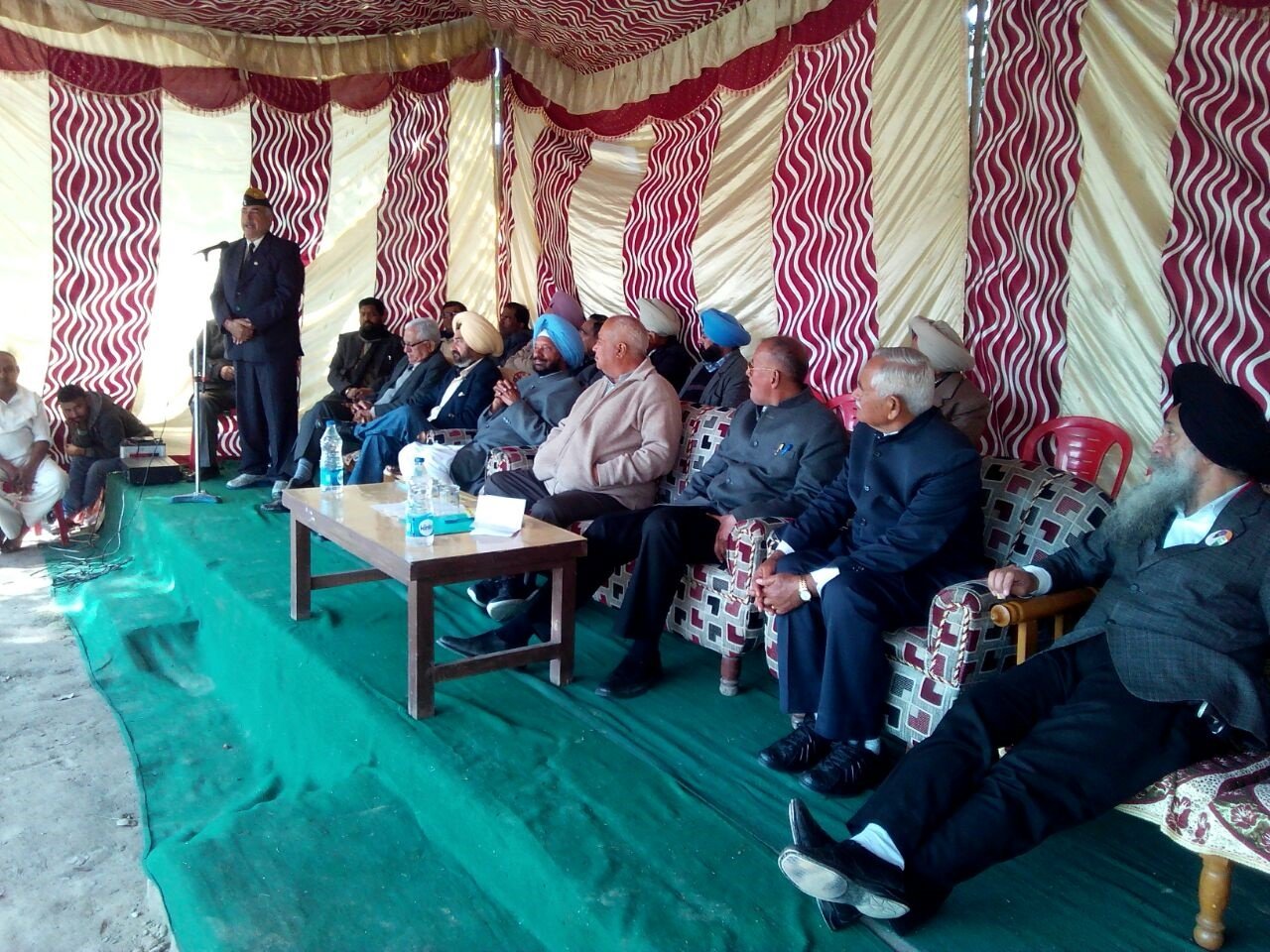
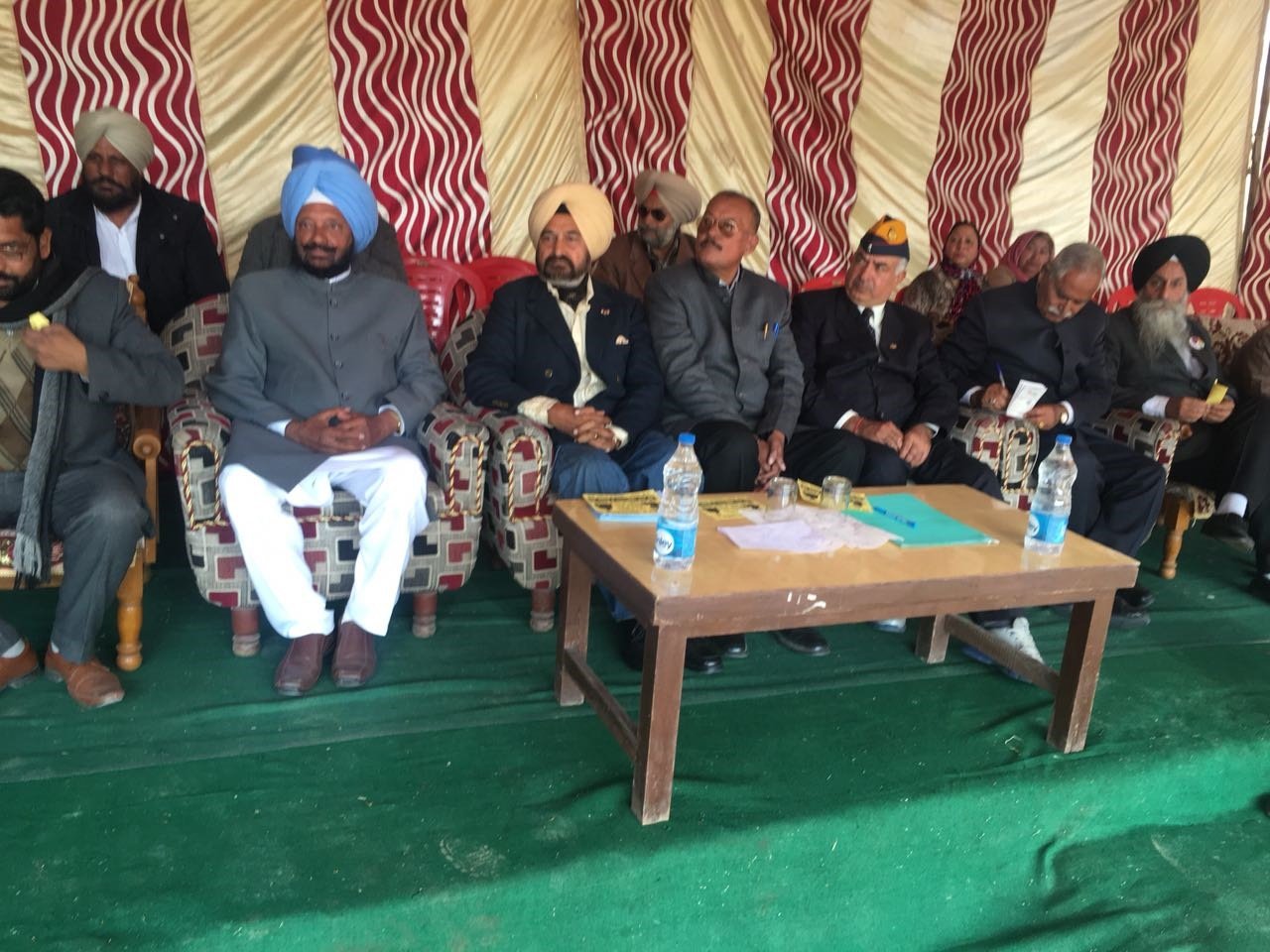
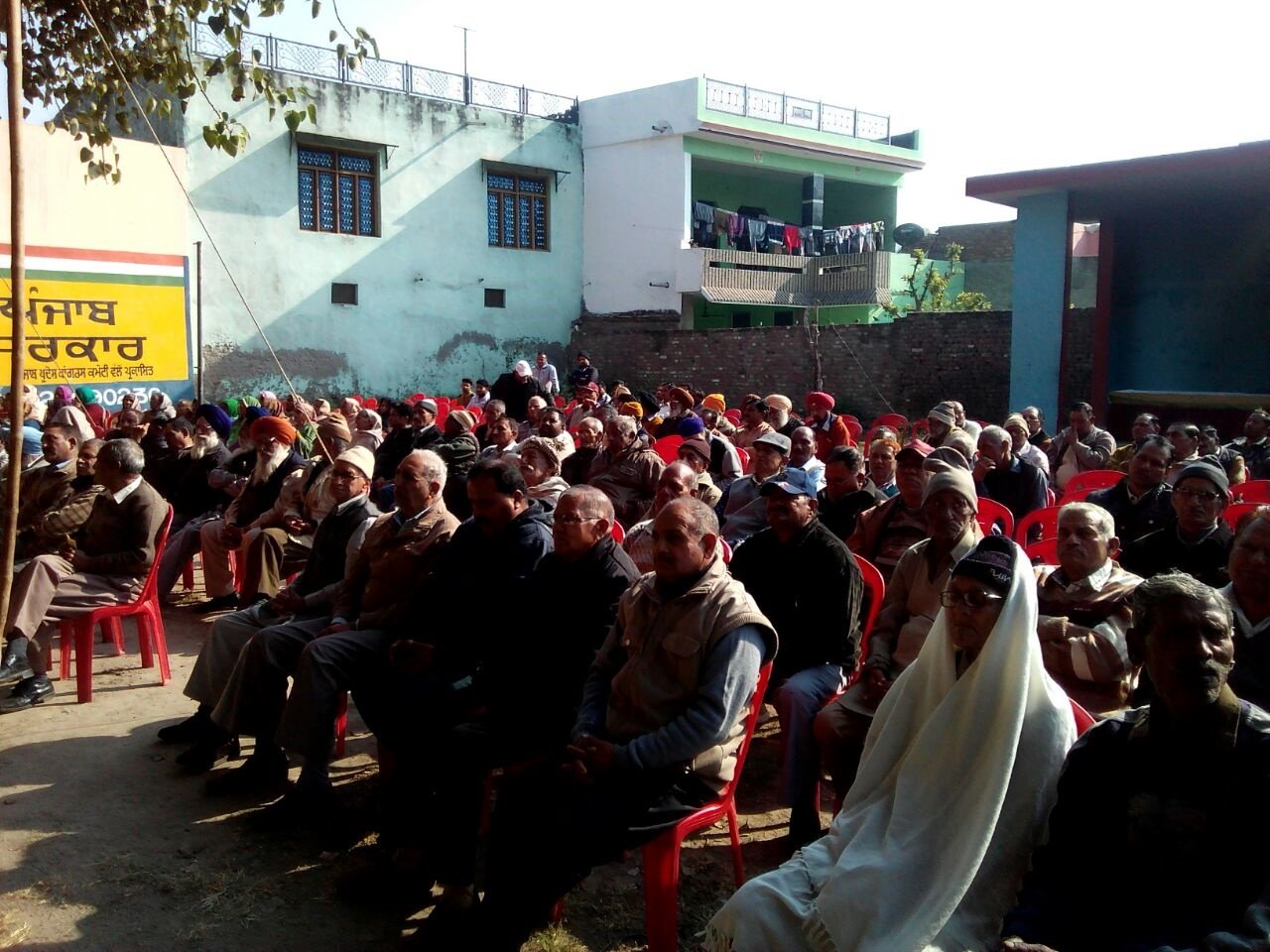
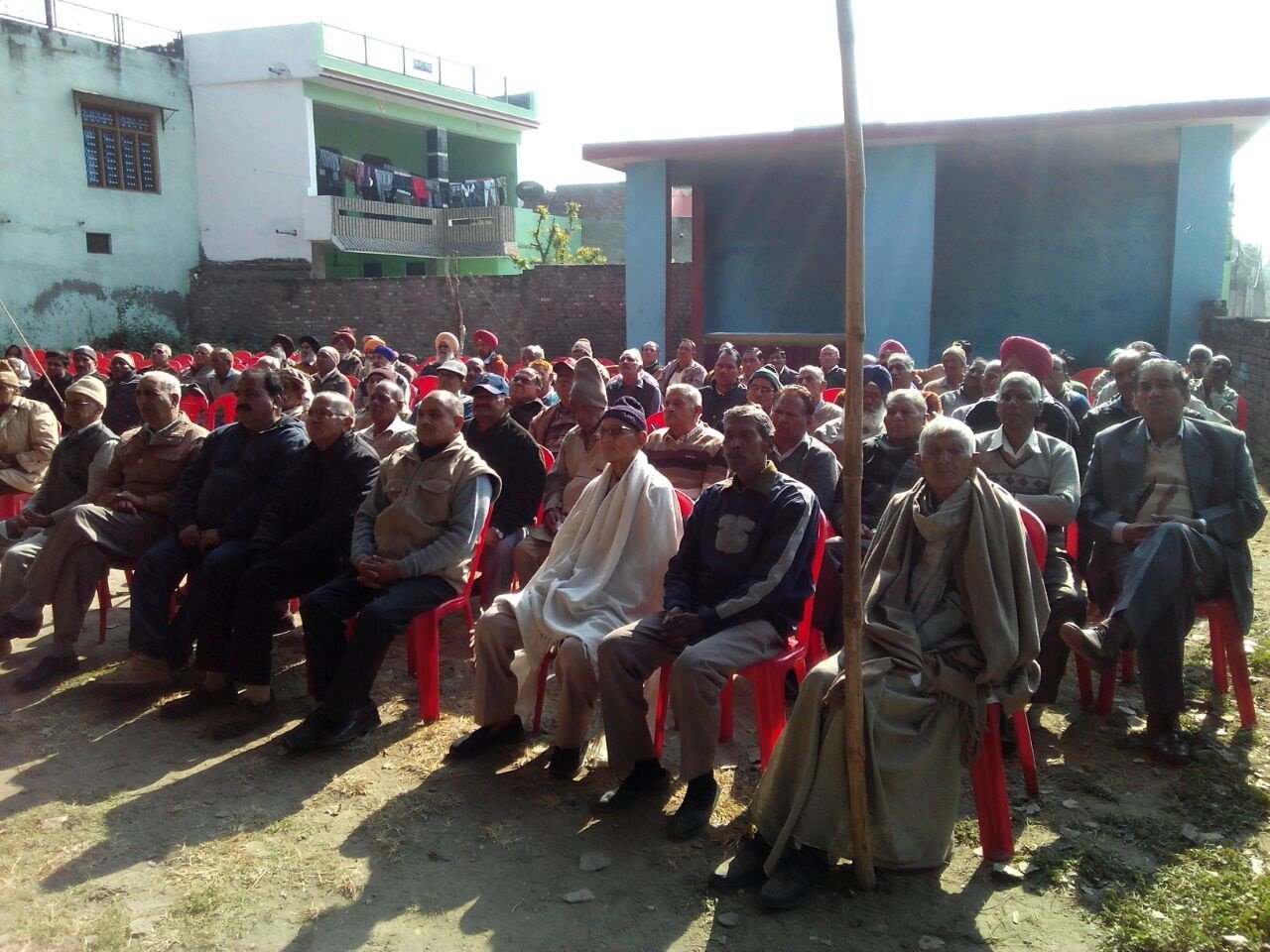

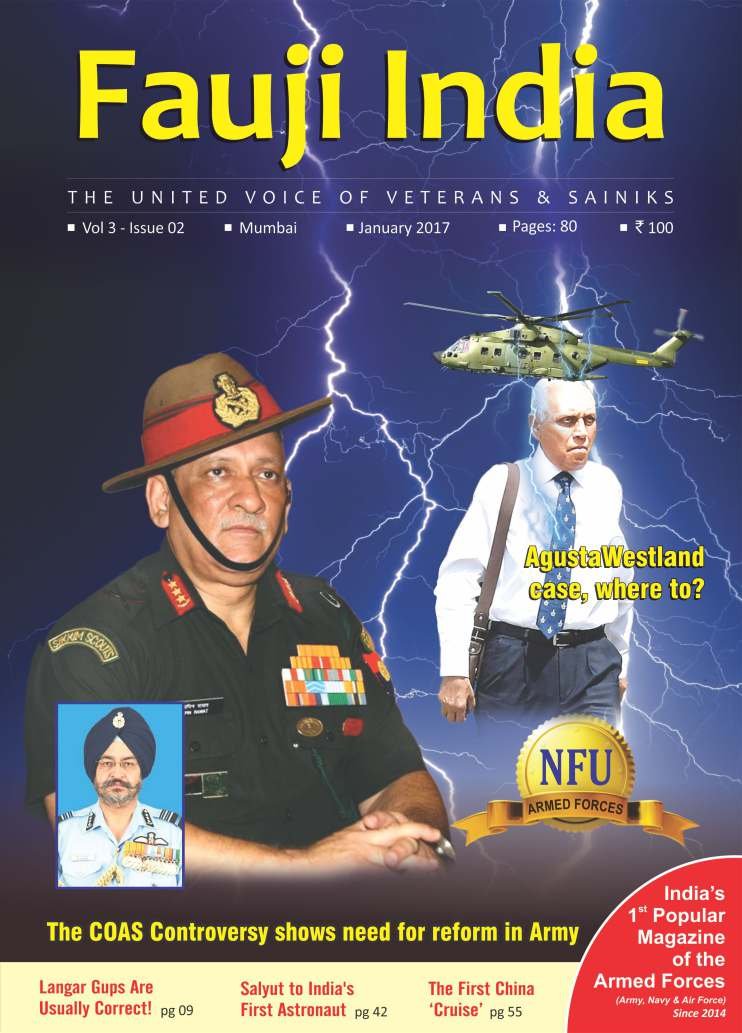
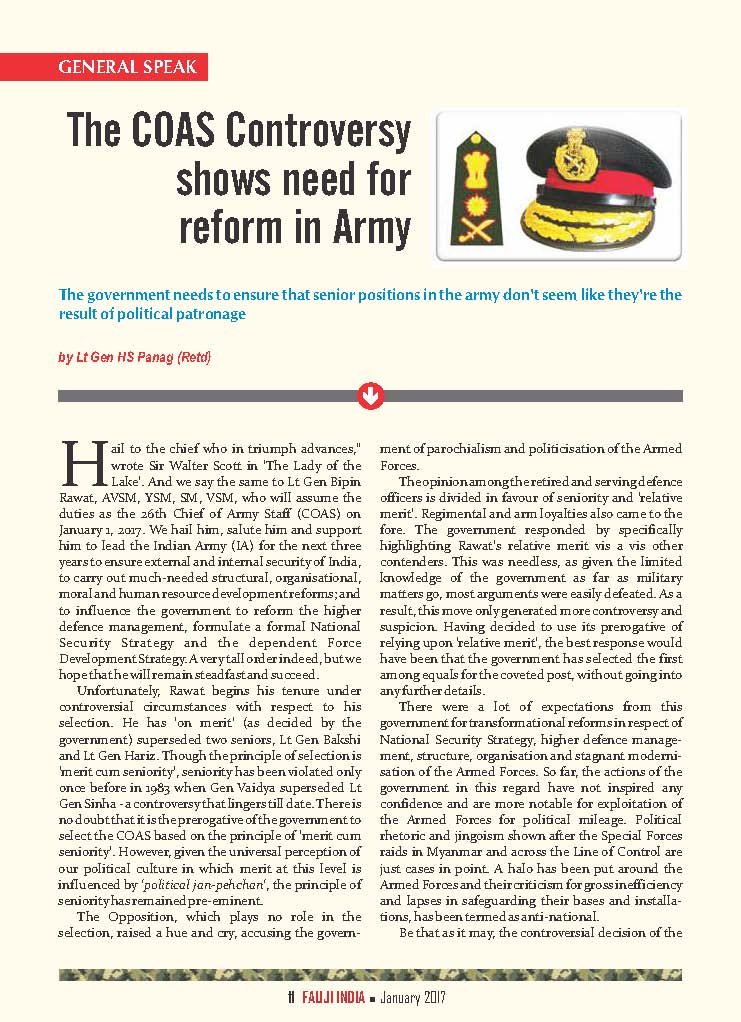

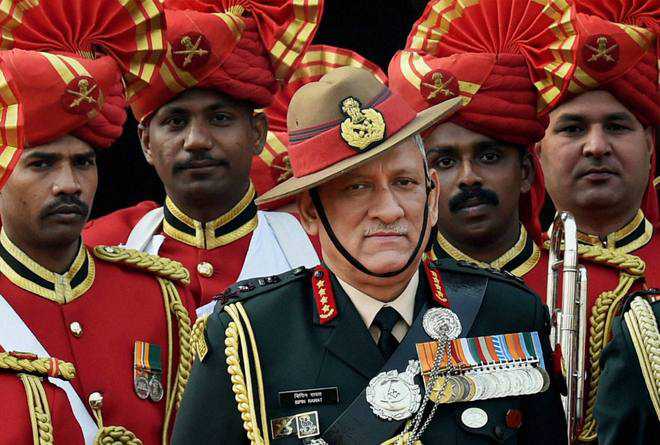












 AJAY AGGARWAL/HT PHOTO
AJAY AGGARWAL/HT PHOTO DALJEET KAUR SANDHU/HT
DALJEET KAUR SANDHU/HT

 PARDEEP PANDIT/HT
PARDEEP PANDIT/HT

























































